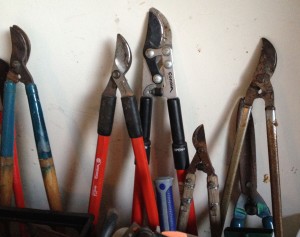The Land Owner’s Duty to Warn and Maintain
PROPERTY OWNERS HAVE A DUTY TO MAINTAIN PROPERTY IN A REASONABLY SAFE CONDITION
The basic duty giving rise to premises liability is the land owner’s duty to maintain property (meaning both land and improvements on land) in a reasonably safe condition. This duty also applies (in appropriate circumstances) to people in possession and control of land, not just to the actual owner.
The duty applies to both natural and artificial conditions, and to conditions which may change based on weather or other situations. This means the property owner (or person in possession and control) must maintain structures, landscaping, decorative features, and all other aspects of the property and improvements in a reasonably safe state.
“Reasonably safe” does not require the property owner to ensure that accidents never happen, or to eliminate every potentially hazardous condition. In fact, landowners are not generally liable for injuries resulting from “trivial hazards” – meaning hazards which are legally considered “insignificant” – even if an accident does result from those conditions. Whether or not a condition is “insignificant” is determined by the court as a matter of law, after examination of the facts and circumstances surrounding the condition and the injury which resulted from it.
The duty may also require a property owner (or a person in possession) to repair or minimize the danger from hazards created by someone or something beyond the property owner’s control. For example, an owner may need to build a fence and post warning signs around a sinkhole caused by a broken water or sewer main passing underneath the property.
In sum: the landowner’s duty requires the property owner (and, in appropriate circumstances, the person(s) in possession) to inspect, repair, and maintain the property in the manner a reasonable person would use under similar circumstances.
LAND OWNERS HAVE A DUTY TO WARN PEOPLE OF HAZARDOUS CONDITIONS
The “duty to warn” imposes on landowners (and, where appropriate, people in possession) a duty to warn other people about hazardous conditions on the land (or premises).
The duty applies to natural and artificial (i.e. “man made”) hazards, and also includes hazards caused by people other than the property owner and circumstances beyond the property owner’s control. Some hazards are considered “obvious”–and the owner generally doesn’t have a duty to warn of obvious hazards–but property owners should exercise extreme caution (and consult an attorney) before deciding that a hazard is “too obvious” to require a warning. In addition, courts sometimes do hold property owners partially liable for injuries resulting from obvious hazards, where the property owner could or should have done something to avoid or lessen the harm.
It’s better to err on the side of posting signs and fences than to end up on the losing end of premises liability litigation.
If you believe you have a claim against a property owner, or someone in possession and control of property, consult an attorney promptly. Delay could damage your claims and legal rights. If you’re a landowner uncertain about the nature and extent of your legal obligations to repair, maintain, and warn, consult an attorney for an individual evaluation of your rights and obligations.
***
DISCLAIMER: This article is intended for informational purposes only, does not constitute legal advice to any person or entity, and does not create an attorney-client relationship with any person or entity. Premises liability is a complex legal topic, and no single article can provide complete or comprehensive coverage or information about this or any other legal topic or issue. Your personal liability may differ, based on your individual facts and circumstances. If you believe you have a legal claim or issue, or wish to know more about your individual rights, consult an experienced attorney without delay.
















